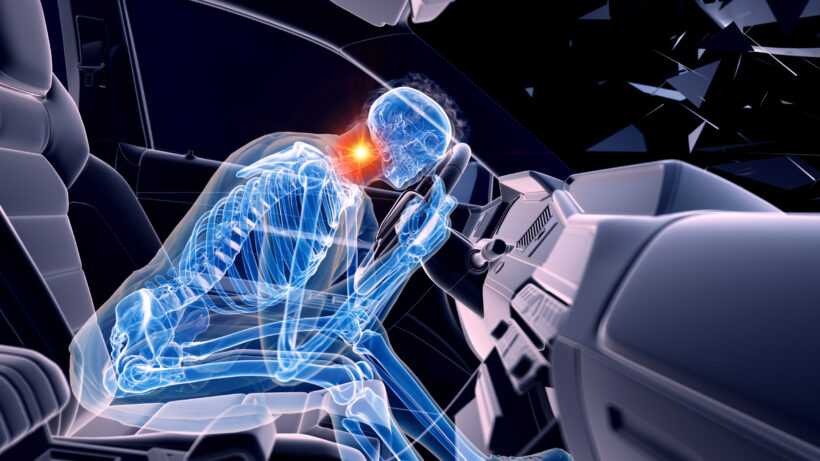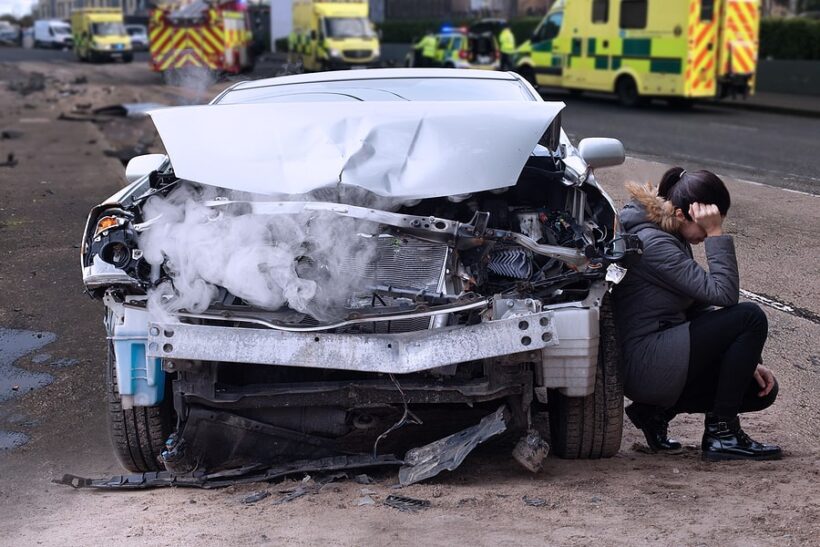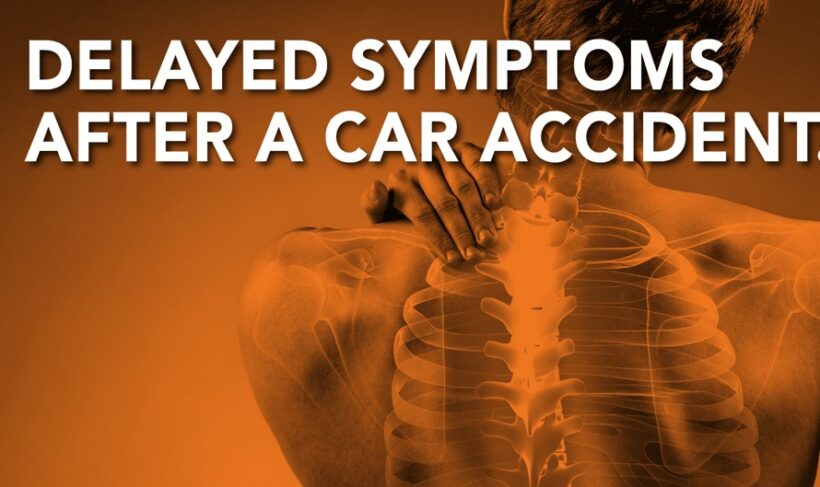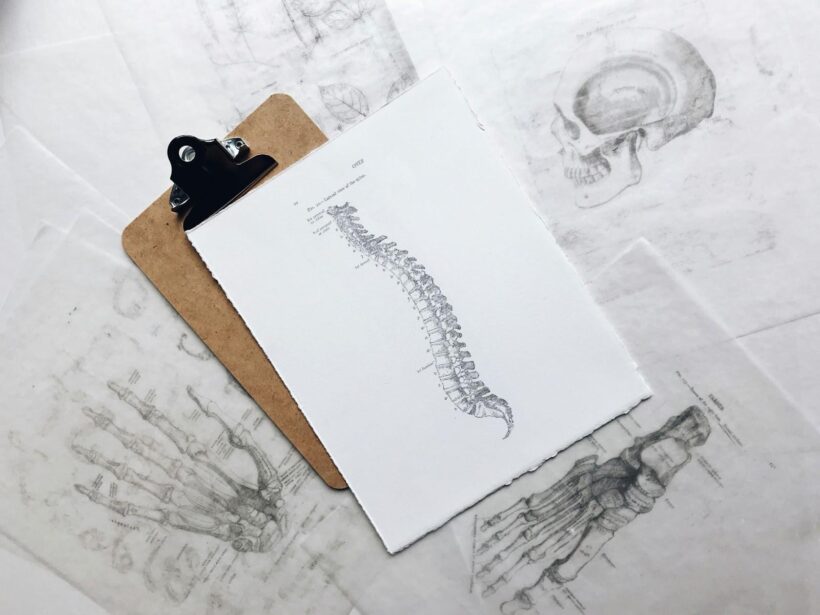After a car accident, it is of utmost importance to keep watching your health and body. You might feel ok immediately after the car crash and think that you have not sustained any injuries, but certain injuries may not appear right away. Some may take days or even weeks to show signs or symptoms.
Adrenaline and endorphins are also some things that your body releases to help you survive the car crash. Usually it helps you cope emotionally and hides your physical pain. That’s why most people when their adrenaline is pumping and something bad happens, it doesn’t truly hit them until after the adrenaline wears off.
Below are some common accident delayed injuries to keep an eye on, as well as their symptoms that may show up. If you think you are experiencing a delayed injury, seek medical attention as soon as possible to get tested and treated. If you were injured in a vehicle accident in Augusta and want to seek compensation for your injury and losses, speak to an Augusta car accident attorney at Nicholson Revell.
Back Pain
When an auto collision has a large impact, it puts a lot of pressure on the spine and back. Lower back pain is a common injury people experience from car crashes. A much more severe injury one may sustain is a spinal cord injury.
Herniated Discs
During a car accident, your spine’s discs may shift around, compressing your nerves. A herniated disc is when the inner part of your spinal disc is pushed out through a tear in the outer ring. Many people actually don’t experience any symptoms, but for those who do, they experience:
- Sharp or burning arm or leg pain
- Lower back herniated disk: pain in lower back, thigh, calf, buttocks
- Neck herniated disk: shoulder and arm pain
- Numbness or tingling in the nerve areas affected
- Weakness when lifting or holding things
Most of the time, symptoms will get better on their own, but in the case that your symptoms worsen, you have bladder or bowel dysfunction, or saddle anesthesia (loss of sensation in the inner thighs, back of legs and lower behind), seek medical attention as soon as possible.
Spinal Cord Injury

This includes injury to any part of your spinal cord, including nerves. Spinal cords send signals between the brain and the rest of the body, so when the spinal cord is injured, it can cause permanent damage.
Two types of spinal cord injuries:
- Complete: All feeling and ability to control your body is lost below the spinal cord injury.
- Incomplete: Some feeling and control remain active below the injury.
Symptoms:
- Paralysis
- Arms, hands, trunk, legs, and pelvic organs
- Loss of movement
- Numbness, tingling, loss of feeling (heat, cold, touch)
- Loss of bowel or bladder control
- Exaggerated reflexes or spasms
- Intense stinging pain in nerves
- Trouble breathing or coughing
- Trouble with balance or walking
Neck Pain
The sudden stop of a car accident causes your body to move forward and jerks your head backward and forward. Seatbelts protect your body from flying from the car, but it causes most of the force to be placed on your neck. Muscle strains and sprains may occur due to a potential tear in your neck from the sudden movement.
Whiplash
Occurs when your head is suddenly jerked back with a strong force, straining your neck, back muscles and tissue.
- Neck pain
- Fatigue or dizziness
- Headaches starting at skull’s base
- Stiffness
- Reduced range of motion in the neck
- Tenderness in shoulder or arms
- Muscle spasms
- Tingling or numbness in arms
Headaches
During an accident, due to the force of the crash, your head may have hit the car’s interior or airbag, causing trauma. Depending on the level of force your head was hit, it may determine the severity of your head trauma. Mild head injuries may result in a concussion and a severe case may lead to traumatic brain injury (TBI). Depending on the location of the injury, symptoms may appear right away or take weeks later and may evolve. Because of this, if you hit your head during a car accident, you should seek medical attention.
Concussion Symptoms
- Headache or Dizziness
- Mild confusion
- Trouble with concentration or remembering
- Nausea
- Tinnitus (ringing in ears)
- Blurred vision
- Fatigue or irritability
- Sensitivity to light or sound
TBI Symptoms
- Severe headache or migraine
- Losing consciousness, potential coma
- Locked in syndrome (can’t move or speak)
- Slurred speech
- Constant nausea or vomiting
- Seizures or convulsions
- Short term memory loss
- Behavior changes
- Loss of vision (one eye or both)
- Enlargement of pupils
Abdominal Pain
Feeling pain in your stomach area is serious. It most likely means that you have internal bleeding or something happened to your organs. It needs serious medical attention.
Internal Bleeding
Internal hemorrhages can happen slowly, but are serious and can cause dangerous damage. It’s hard to visibly see internal bleeding with the eye, but watch for these symptoms:
- Severe pain
- Confusion and dizziness
- Nausea and vomiting
- Slurred speech
- Unconsciousness
Behavioral Changes
Not only does a car crash cause physical damage, it also causes emotional and psychological damage. The symptoms and damages mentioned above may play a factor in behavioral changes such as from a brain injury.
Post Traumatic Stress Disorder (PTSD)

A common mental health disorder that may develop after a traumatic event occurs, such as a car accident. It interferes with daily life such as work and relationships.
Symptoms:
- Flashbacks or dreams related to the event
- Racing heart and sweating
- Easily startled, on edge
- Difficulty concentrating or with sleep
- Anxiety
- Depression
- Isolation
- Chronic pain
- Gastrointestinal disorder
With behavioral changes, instead of seeking help from a doctor, it is best to seek out the support from a mental health professional.
If you face any of these symptoms listed after a car accident, please contact a medical professional and get help as soon as possible. Make sure to record everything down, such as the details of all your medical visits, treatments you have received, and how the injury affects your daily life. This way, if you decide to seek compensation, you have all the evidence you need.


